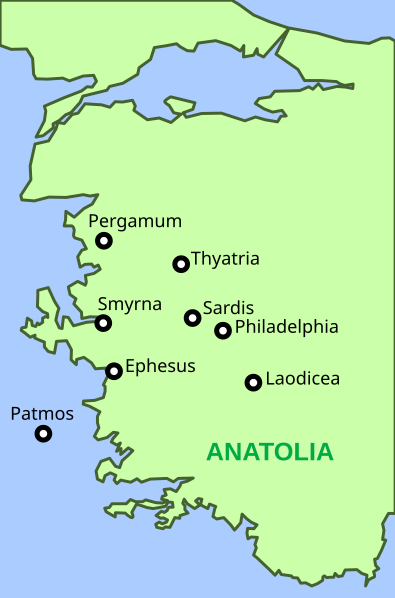Rev 21 clearly and unambiguously says that the Lamb's bride is the new Jerusalem.
A city, not a people. Every gentile in the bible lands knew Jesus was a Jew and that Christ was a Jew.
The language in Revelation is entirely Jewish.
It references Jews, but the 7 churches were well above Jerusalem.
There is a great deal of Jewish history in the book of Revelation.
Agree, which is why I was Covenant in the first place. So respectively, you are saying it is a reason not to read Revelation as your own mail, but there is a whole lot of gentile discussion in Revelation too. So much so, the church in Jerusalem isn't mentioned at all? Such is incredible when you think about it.
How does that have any meaning to the body of Christ where there is neither Jew nor Greek?
As with above, our respective notions have us looking at the same verse, but thinking something very different from the context. In Revelation, specifically, you divide where I see a united book to both Jew and gentile.
Again... what meaning does this have for the body of Christ? The "key of David" is clearly entirely Jewish in nature.
I don't expect the stark difference between Jew-Christian gentile-Christian. Even if one is MAD, there is every sense that you are, to some extent, also part Jewish as a Christian, not by nationality, but by association of the "King of kings." When James talks about the tongue being uncontrollable, though his audience is Jewish, he is talking about all of our tongues. So where MAD has a turn off switch at the mention of all things Jewish, I rather run one more filter: Does it apply to a gentile, regardless? And of course, I don't believe Jewish language erases a book from application to a gentile. Again, it is very interesting, (and drives my assumption) that the church in Jerusalem is not mentioned, just churches in gentile countries.
The list goes on and on.
As I pointed out in Rev 21, the nations (gentiles) come to the new Jerusalem to serve Israel per Isaiah 60. These parallels cannot be missed.
Its a good and eye-opening discussion. One debate I was reading recently, believes there were Jews that also made up the 7 churches, for instance. The Samaritans were generally North of Jerusalem and Jews, generally saw any intermarriage as no longer Jew but half-breeds and worse (why they were despised and why the disciples found it odd Jesus was talking to a Samaritan woman). I'm open to whatever is true, not caught up in indoctrination so much that I cannot see the other side of this debate. You've made some good points. -Lon

